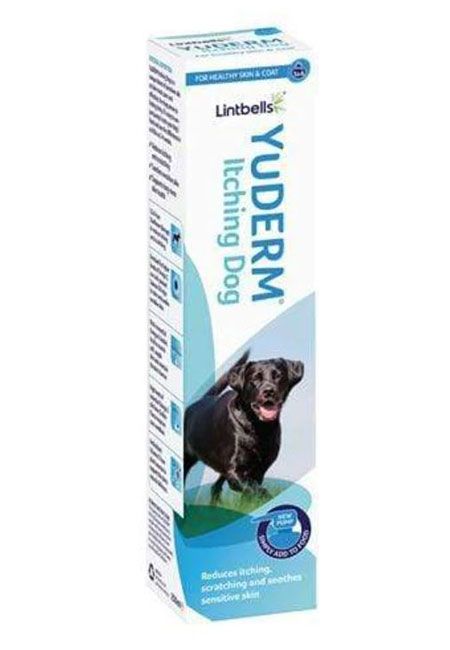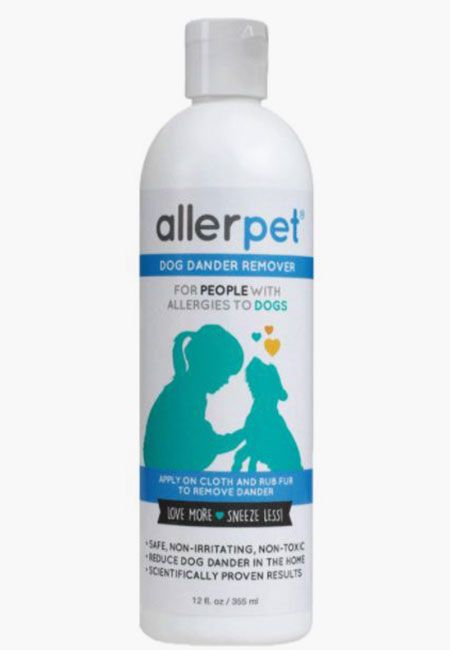It's springtime which means hay fever season is upon us. But did you know that spring allergies also affect dogs? Dust, pollen and plants can all set off allergies for your furry friend. With the help of Sean McCormack, Head Vet at tails.com, we've rounded up a list of how to spot the signs your dog may be affected by irritating spring allergies.
SEE: 13 royals and their beloved pet dogs in photos
From sneezing, licking, scratching and more, keep scrolling to discover how you can spot the signs if your beloved pet is struggling with allergies.
Scratching
The amount of itching your pet may experience can range from mild to excessive, and is most noticeable around the chest, armpit, and paw areas. If left untreated, the itching can lead to your dog scratching the skin until raw which increases the risk of a nasty infection.
If you notice that your dog has been scratching or licking its skin more than normal, do not hesitate to take a trip to the vet.
Natural Skin Soothing Conditioning Shampoo, £8, Pets at Home
SHOP NOW
Excessive licking
A common reaction to allergies is excessive licking of the paws. A dog’s body naturally pushes histamines to the paws which is why they are a hot spot for spotting allergy issues.
MORE: 5 naughtiest dog breeds most likely to wreak havoc at home
Eye discharge
Just like hay fever-suffering humans, dogs’ eyes can become itchy and irritated from seasonal allergies. Seek advice from your vet if your dog has discharge from one or both eyes or if they are consistently rubbing them as it can result in inflammation and secondary infection.
MeacoDRY Dehumidifier, £149.99, John Lewis
SHOP NOW
Hair loss
If your pup is shedding more hair than usual, this may also be a sign of seasonal allergies affecting them through the spring months. Allergies are a common trigger for hair loss in dogs, as they often lead to skin irritation. Hair loss can appear in a single place, in patches or all over the body.
Moulting Dog Cream, £27.25, YuMOVE
SHOP NOW
Sneezing
Although less common, some dogs can experience respiratory issues when suffering from allergies, these can include coughing, wheezing, sneezing and difficulty breathing.
Dogs can experience an allergic response to dust, pollen, mould and other allergens in the air that cause irritation to the nasal passages.
RELATED: 5 cost-friendly dog breeds: Meet the UK's most affordable pups
Red, irritated skin
Red and irritated skin can be a strong sign of an allergic reaction, caused by either your dog’s diet, their environment or parasites. It can be itchy, painful and uncomfortable, which will often prompt dogs to scratch, lick and gnaw at themselves.
If your dog has inflamed, red skin then contact your vet. They can identify and treat the skin rash accordingly.
Anti-Itch Dog Cream, £23.36, YuMOVE
SHOP NOW
Head shaking
Dogs shake their heads to relieve discomfort or irritation in or around the ear area. If your dog shakes their head once or twice, then it's usually nothing to be concerned about, but if they are excessively shaking and vigorously, it's worth asking the vet for help.
Allerpet Dander Remover, £12.99, Amazon
SHOP NOW
Red, swollen eyes
In most cases, if your dog’s eyes are red or swollen, it is likely that they been exposed to an irritating allergen. Take your pet to treat any eye swelling or irritation in your pooch so they can sort out an effective remedy.
SEE: Top 7 dogs to own if you don't have a garden - and not all of them are small!
HELLO!'s selection is editorial and independently chosen – we only feature items our editors love and approve of. HELLO! may collect a share of sales or other compensation from the links on this page. To find out more visit our FAQ page.














